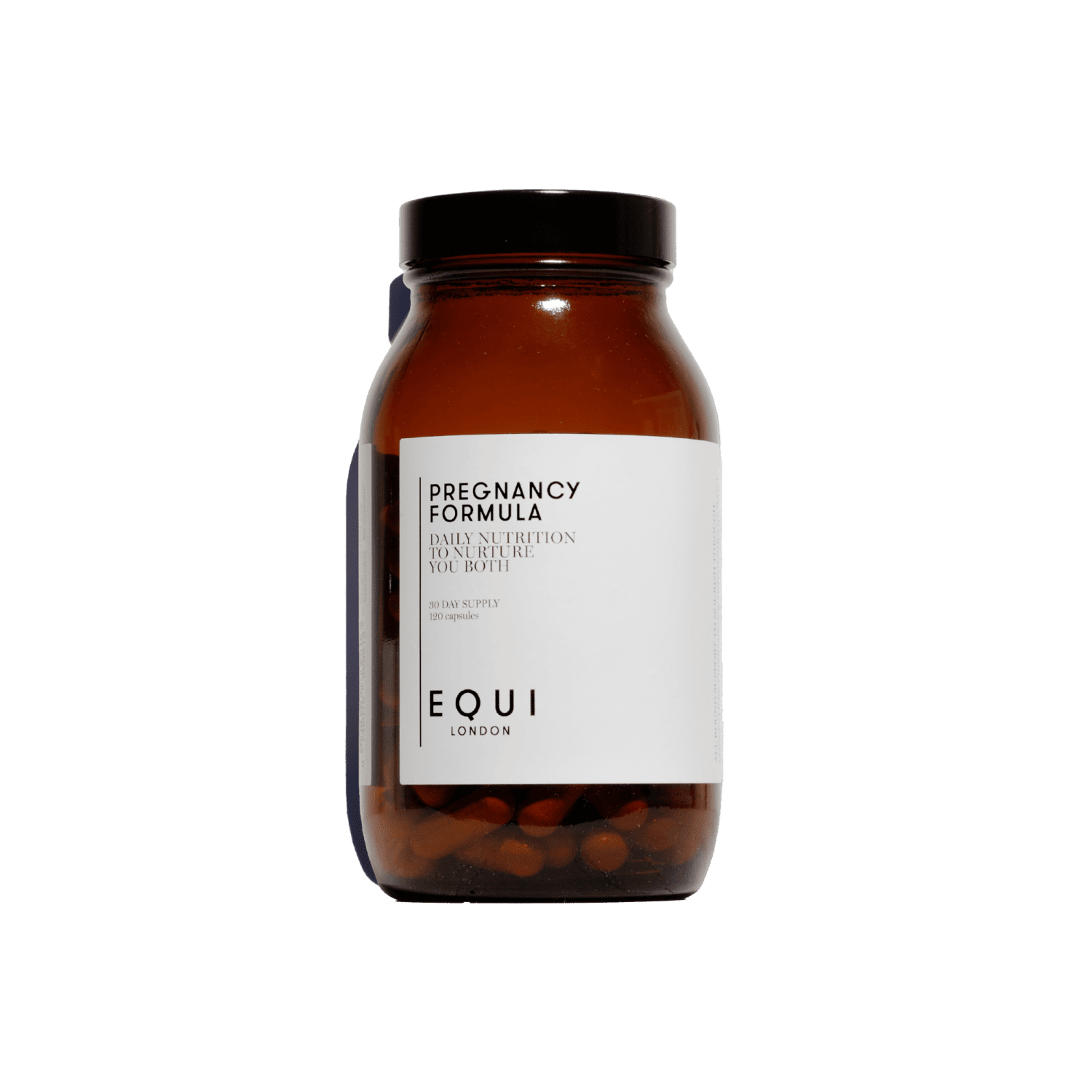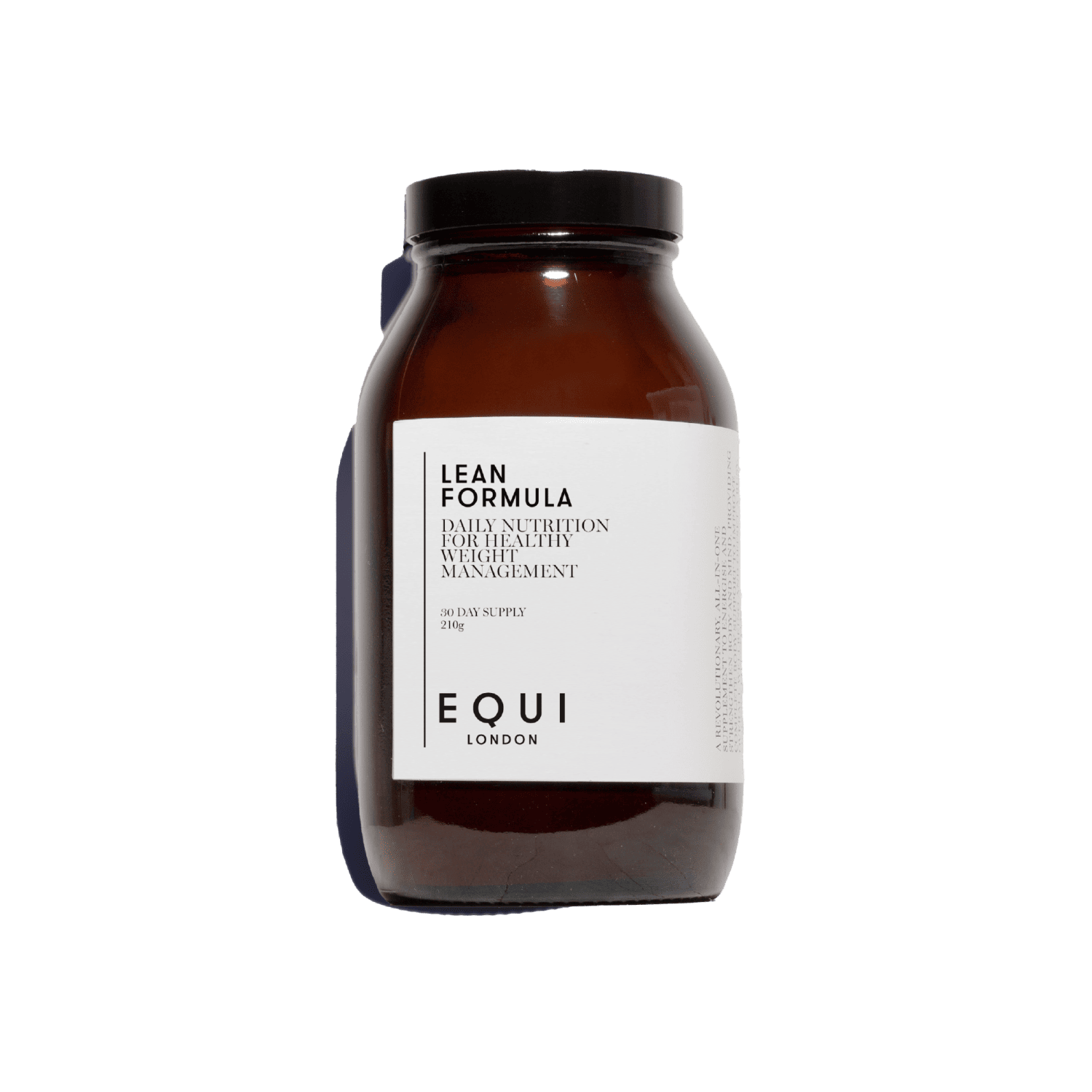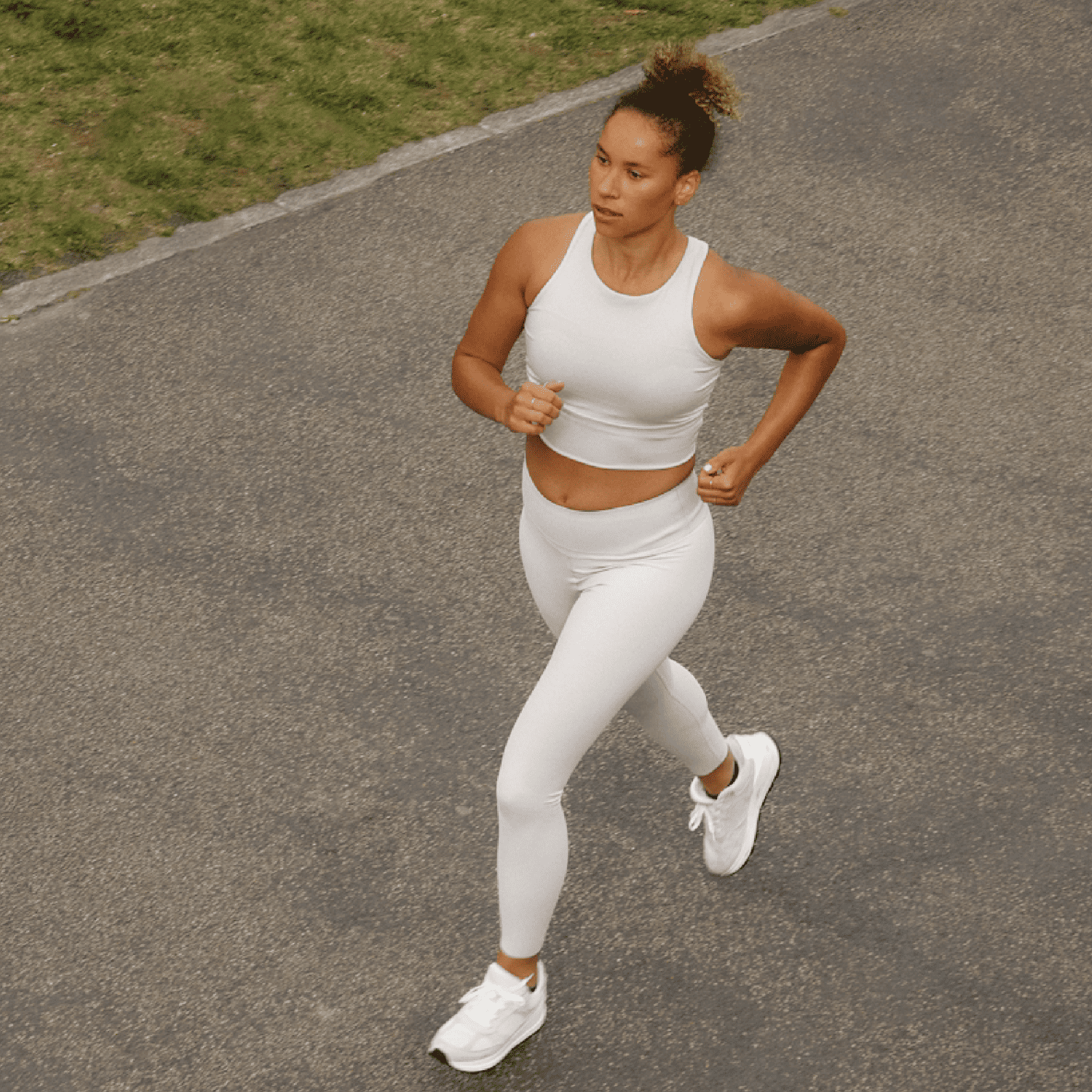
Ever had one of those mornings where you just feel bloated, and everything seems a bit tighter?
It’s almost like your favourite pair of jeans have conspired against you overnight. We've all been there! This might just be your body holding onto more water than necessary - a common phenomenon known as water retention. Don’t worry, it's nothing to fret over - it's actually a common issue that happens to most of us from time to time.
Our bodies, as fabulous as they are, can sometimes get a tad overzealous and hold on to a little too much H2O. A whole host of factors can tip the scales - from the foods we eat, to our exercise habits, stress levels, the amount of sleep we’re getting, flying and, yes, even our hormones can play a part. But the good news is that there are plenty of ways we can help our bodies strike a balance again - from dietary changes and lifestyle tweaks to incorporating some key nutrients into our diet. So, let's dive into the ins and outs of water retention.
Understanding Water Retention
Let’s start by unravelling the mystery of water retention. In essence, it's when excess fluid builds up inside your body. This fluid, mainly water, gets trapped in your body's tissues and circulatory system instead of being eliminated through your kidneys. The result? That uncomfortable, puffy feeling we sometimes get, often noticed in our hands, feet, legs, and abdomen.
But why does this happen?
It can be down to a high-sodium diet, lack of exercise, or sitting or standing for long periods. It can also be a side effect of certain medications, or an in rare cases, an indication of some health issues. More often than not, it’s temporary and can be managed with some simple changes. What we also know is that women are particularly susceptible. You've probably noticed changes in your body around 'that time of the month', right? Hormonal fluctuations, especially in progesterone and oestrogen levels, play a big role in regulating fluid balance. These shifts, which happen during our menstrual cycles, pregnancy, or menopause, can cause our bodies to retain more water than usual.
So, how does water retention impact our bodies?
Well, besides the obvious physical discomfort and changes in our appearance (hello, bloating!), it can lead to stiff joints, weight fluctuations and changes in blood pressure and pulse rate. It's also worth noting that persistent or severe water retention can sometimes be a sign of a more serious underlying health condition, so it's always worth checking in with a healthcare professional if you're concerned.
Our bodies are incredible and constantly working hard to maintain balance. So next time you're feeling a bit more 'swell' than usual, give your body a little extra love and care! Here are a few ways to help reduce water retention:
Diet and Water Retention
We all love a good snack, but some of our go-to comfort foods might actually be causing water retention! When we take in more salt than our bodies need (and many processed foods are loaded with it), our bodies hold on to extra water to dilute the excess sodium. This can cause fluid build-up in the body's tissues and circulatory system, leading to water retention. In one study, healthy men were given a high-salt diet, and researchers found that they drank more, urinated more, and held on to more water (1). Sugar is also an issue and it’s not just about weight gain. Consuming high amounts of sugar has been linked to increased insulin resistance. This can affect your kidneys' ability to properly balance fluids and electrolytes, potentially leading to water retention (2). To reduce sugar intake, avoid processed foods that contain added refined sugars and swap white grains and carbs for wholegrain varieties. Food can also be our ally in combatting water retention! Foods rich in potassium, like bananas, oranges, and spinach, help balance out sodium levels, helping our bodies get rid of excess fluid (3). A green juice or smoothie a day might be the answer to supporting your potassium levels.
Lifestyle Factors and Water Retention
Juggling work, family, social life, travel, and everything in between can sometimes make it challenging to maintain a balanced lifestyle. But did you know that lifestyle factors like stress, lack of exercise, and inadequate sleep can contribute to water retention? Let's dive into why this happens and what we can do about it.
Stress
Whether physical or emotional, stress can cause our bodies to release the hormone cortisol. When cortisol levels remain high due to chronic stress, it can disrupt the balance of other hormones, leading to fluid retention. One study found that prolonged stress can lead to changes in body fluid balance (4). Carving out some time for relaxation and stress-reducing activities, such as yoga, meditation, or simply a quiet walk in the park, can help keep those cortisol (stress hormone) levels in check.
Exercise
When it comes to exercise, it's not just about burning calories. Regular physical activity stimulates blood circulation and helps your lymphatic system work better, which can prevent fluid from accumulating in tissues, hence reducing water retention. A study found that exercise had a positive effect on lymphedema, a condition characterised by fluid retention (5). When it comes to exercise, find something you enjoy – be it dancing, swimming, cycling, or a brisk walk. Not only will it help with water retention, but you'll also feel more energised and happier thanks to the endorphins released during exercise!
Sleep
Lack of quality sleep can also throw our hormones out of whack. One study showed that reduced sleep can lead to hormone imbalances, which could affect fluid regulation and lead to water retention (6). Hormones are a big topic so keep reading below for more on that! When it comes to sleep, it’s all about what you do in the lead up to bedtime. Create a calming pre-sleep routine, ensure your bedroom is dark and cool, and try to go to bed and wake up at the same time each day to regulate your sleep/wake cycle, also known as circadian rhythm.
Flying
Flying can also increase water retention due to a few factors. One of these is the sedentary nature of air travel, which can reduce blood flow and contribute to fluid build-up in the lower limbs. Also, the pressurised cabin environment can lead to dehydration, causing the body to retain fluid as a protective mechanism. The dry cabin air can increase water loss from the body too. As if all these factors weren’t bad enough, consuming salty foods or drinks, often a staple of in-flight service, can also exacerbate water retention. This is because, as explained earlier, sodium naturally encourages the body to retain water. Maintaining good hydration, regular movement, and limiting salt intake during flights can help manage water retention.
Hormones and Water Retention
Hormonal changes throughout our menstrual cycle, pregnancy, and menopause can significantly affect our water balance. Here's how:
Our bodies are delicately balanced systems, and the hormones oestrogen and progesterone play significant roles in regulating water and electrolyte balance. When these hormone levels fluctuate, as they do during the menstrual cycle, as well as during various life stages such as pregnancy and menopause, this balance can be disturbed, leading to water retention (7). Specifically, oestrogen influences the production of aldosterone, a hormone that regulates sodium and fluid balance. When oestrogen levels drop, it can cause an increase in aldosterone, leading to more sodium and water being retained by the kidneys (8). Progesterone, on the other hand, has natural diuretic properties, which means it promotes water excretion. As levels of this hormone decrease, this can also contribute to water retention (9). This can cause bloating, swelling in the hands, feet, or breasts, and even weight gain. Pregnancy brings about a whole new set of hormonal changes. The increase in blood volume and hormonal shifts can lead to water retention, particularly in the legs and feet. Similarly, during the peri-menopausal years and menopause, fluctuating hormones can lead to changes in fluid balance. Lifestyle changes can often help manage these symptoms, but in some menopausal women, hormone replacement therapy (HRT) is used. Studies have shown that HRT can help to alleviate water retention (10).
Nutrients That May Help
When it comes to managing water retention, some nutrients and foods can be quite beneficial. Here are our top five nutrients that can help with water retention:
Magnesium: This mineral plays a crucial role in over 300 enzymatic reactions in the body, including those involved in the regulation of fluid balance. One study showed women who took magnesium supplements had reduced symptoms of water retention related to their menstrual cycles (11). Magnesium can be obtained from foods including green leafy veg such as spinach, legumes, nuts, seeds, and wholegrains. We have included magnesium in every Formula here at Equi, as we know just how important this mineral is!
Vitamin B6: This vitamin, also known as pyridoxine, has been shown to help reduce water retention. It functions as a natural diuretic, helping the body eliminate excess water through urine. A study on premenstrual syndrome found that women who took vitamin B6 supplements experienced fewer symptoms of water retention (12). Food sources include fish, beef liver and other organ meats, potatoes, chickpeas, and dark leafy greens. We made sure to include this hormone balancing nutrient in our Wellness (Original) Formula, as well as Pregnancy Formula.
Potassium: Potassium is essential in maintaining fluid and electrolyte balance. It works with sodium in a delicate balance - while sodium attracts water, potassium helps to flush out excess sodium and, therefore, water from the body. Studies have shown that a higher intake of potassium through foods can reduce water retention by increasing urine production and decreasing sodium levels. Most people can get enough potassium through diet so there’s no need to supplement this. Food sources include dried apricots and raisins, beans, lentils, winter squash, spinach, broccoli, avocado and bananas.
Dandelion: Dandelion (also known as Taraxacum officinale) is traditionally used as a natural diuretic. It helps the body eliminate excess water and salt through increased urine production. A study found that dandelion extract consumption led to significant increase in the frequency of urination within a 5-hour period, therefore assisting in reducing water retention (13). Dandelion is often found in herbal teas – we love Pukka’s radiance tea which contains dandelion root.
Green Tea Extract: Green tea is known for its diuretic properties. It promotes hydration by increasing urine output, helping to reduce water retention. It contains potent antioxidants, particularly catechins, which also aid in boosting metabolism and supporting weight management. A study found that green tea extract led to significant increased urine output over a 24-hour period (14), therefore helping with water retention. A matcha latte is a great alternative to coffee and would have the added benefit of helping with water retention!
References
-
Rakova, N. et al., (2017). 'Long-Term Dietary Sodium, Potassium, and Fluid Intake; Exploring Potential Novel Risk Factors for Renal Cell Cancer in the NIH-AARP Diet and Health Study', British Journal of Cancer, vol. 116, no. 6, pp. 687–693.
-
Stanhope, K. L. et al., (2009). 'Consuming Fructose-sweetened, not Glucose-sweetened, Beverages Increases Visceral Adiposity and Lipids and Decreases Insulin Sensitivity in Overweight/Obese Humans', Journal of Clinical Investigation, vol. 119, no. 5, pp. 1322–1334.
-
Palacios, C., Wigertz, K., Braun, M., Martin, B.R., McCabe, G.P., McCabe, L., Pratt, J.H., Peacock, M., Weaver, C.M., (2020). 'Magnesium Retention from Metabolic-balance Studies in Female Adolescents: Impact of Race, Dietary Salt, and Calcium', American Journal of Clinical Nutrition, vol. 91, no. 3, pp. 573–578.
-
Yan, Y.X., et al., (2015). 'Systematic investigation of gastrointestinal diseases in China (SILC): validation of survey methodology', BMC Gastroenterology, vol. 9, no. 86.
-
Choi, J., et al., (2015). 'Effects of manual lymph drainage of the neck on EEG in subjects with psychological stress and insomnia', Journal of Physical Therapy Science, vol. 27, no. 3, pp. 955–958.
-
Spiegel, K., et al., (2004). 'Brief Communication: Sleep Curtailment in Healthy Young Men Is Associated with Decreased Leptin Levels, Elevated Ghrelin Levels, and Increased Hunger and Appetite', Annals of Internal Medicine, vol. 141, no. 11, pp. 846–850.
-
Stachenfeld, N.S., (2008). 'Sex Hormone Effects on Body Fluid Regulation', Exercise and Sport Sciences Reviews, vol. 36, no. 3, pp. 152–159.
-
Stachenfeld, N.S., Taylor, H.S., (2012). 'Challenges and methodology for testing young healthy women in physiological studies', American Journal of Physiology-Endocrinology and Metabolism, vol. 302, no. 10, pp. E1013–E1021.
-
Machnik, A., Neuhofer, W., Jantsch, J., Dahlmann, A., Tammela, T., Machura, K., Park, J-K., Beck, F-X., Müller, D.N., Derer, W., Goss, J., Ziomber, A., Dietsch, P., Wagner, H., van Rooijen, N., Kurtz, A., Hilgers, K.F., Alitalo, K., Eckardt, K-U., Luft, F.C., Kerjaschki, D., Titze, J., (2010). 'Macrophages regulate salt-dependent volume and blood pressure by a vascular endothelial growth factor-C-dependent buffering mechanism', Nature Medicine, vol. 15, no. 5, pp. 545–552.
-
Wang, L., Szklo, M., Folsom, A.R., Cook, N.R., Gapstur, S.M., Ouyang, P., (2016). 'Endogenous Sex Hormones, Blood Pressure Change, and Risk of Hypertension in Postmenopausal Women: the Multi-Ethnic Study of Atherosclerosis', Atherosclerosis, vol. 253, pp. 202–208.
-
Kass, L., Weekes, J., Carpenter, L., (2012). 'Effect of Magnesium Supplementation on Blood Pressure: A Meta-Analysis', European Journal of Clinical Nutrition, vol. 66, no. 4, pp. 411–418.
-
Ebrahimi, E., Motlagh, S.K., Nemati, S., Tavakoli, Z., (2012). 'Effects of Magnesium and Vitamin B6 on the Severity of Premenstrual Syndrome Symptoms', Journal of Caring Sciences, vol. 1, no. 4, pp. 183–189.
-
Clare, B. A., Conroy, R. S., & Spelman, K., (2009). 'The Diuretic Effect in Human Subjects of an Extract of Taraxacum officinale Folium over a Single Day', Journal of Alternative and Complementary Medicine, vol. 15, no. 8, pp. 929–934.
-
Chatterjee, A., Saluja, M., Agarwal, G., & Alam, M., (2010). 'Green tea: A boon for periodontal and general health', Journal of Indian Society of Periodontology, vol. 16, no. 2, pp. 161–167.




